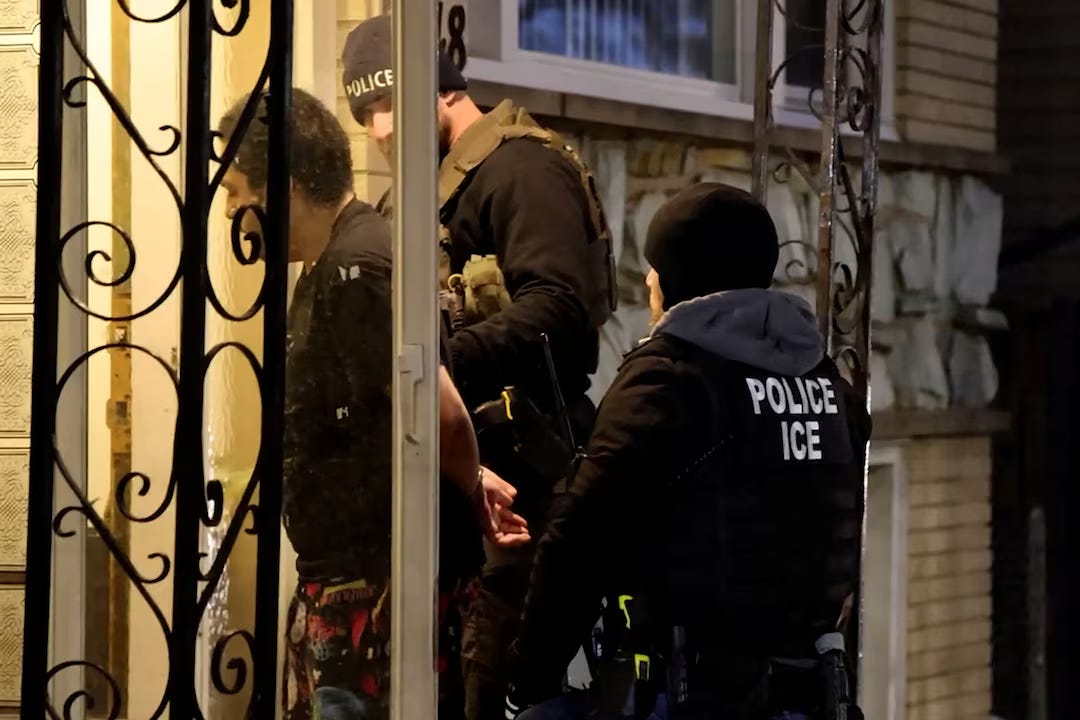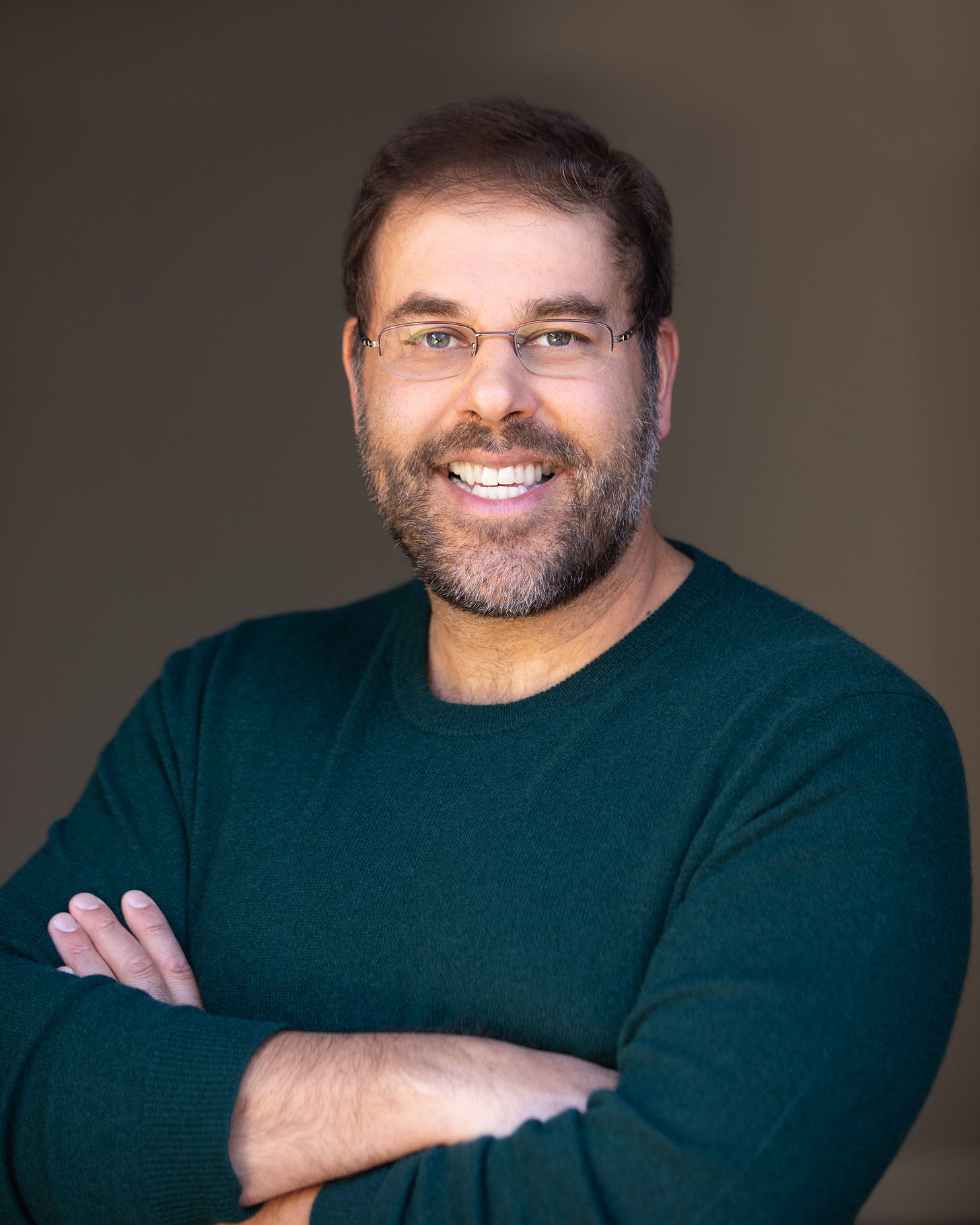Why Have Americans Become So Cruel?
The cruel policies of our moment will not reduce the fears that motivate them. We need to show that kindness is better and more effective.

By Jeremi Suri
I grew up believing that Americans were kind people. That was central to our collective memory. We thought of ourselves as a country of neighbors who helped one another. We had our differences, to be sure, and we still suffered from many prejudices, but we wanted the best for everyone, at home and abroad. When everything was on the line, Americans would step up, in unity, to do the right thing. That is what we told ourselves.
Historical memory confirmed this belief. Speaking on the fortieth anniversary of the Allied landings at Normandy, President Ronald Reagan described the enduring legacy of American goodness:
“You were young the day you took these cliffs; some of you were hardly more than boys, with the deepest joys of life before you. Yet, you risked everything here. Why? Why did you do it?
The men of Normandy had faith that what they were doing was right, faith that they fought for all humanity, faith that a just God would grant them mercy on this beachhead or on the next. It was the deep knowledge – and pray God we have not lost it – that there is a profound, moral difference between the use of force for liberation and the use of force for conquest. You were here to liberate, not to conquer, and so you and those others did not doubt your cause. And you were right not to doubt.”
These words still move me to tears. Despite their many failings, Americans proved their goodness by joining a grand allied cause to defeat fascism and rebuild war-torn societies. At home, Americans worked to improve the lives of all citizens, with federal programs like the G.I. Bill that sent more than 8 million veterans of all backgrounds to college and helped more than 4 million veterans of all backgrounds buy homes. American society remained riven by racism and other forms of injustice, but the sincere commitment to improving all lives shined through. Every major postwar politician appealed to this promise when running for office.
President George H.W. Bush, a distinguished veteran himself, captured this sentiment in his inaugural address: “America is never wholly herself unless she is engaged in high moral principle. We as a people have such a purpose today. It is to make kinder the face of the Nation and gentler the face of the world.”
Where has that kindness gone in 2025? I still see it in the students who comfort their friends who are shocked that relatives will be deported from their schools, churches, and homes. I still see it in the firefighters, rescuers, doctors, and nurses rushing to the fires in Los Angeles or the waters of the Potomac to save lives. And I still see it my own neighbors who check in on one another and care for common spaces. We continue to show our kindness in many ways.
But cruelty has become acceptable, often encouraged, as we have not seen in our recent past. The federal government and its state and local collaborators brag about the number of people they have captured and deported – even when many of these people are hard-working mothers and fathers, and some are children. The Trump administration and its supporters have attacked transgender citizens, denying their right to voice their feelings or even exist. They have attacked all forms of diversity, firing people who have devoted their careers to helping those from disadvantaged backgrounds. They have threatened and bullied our closest international allies, including massive unilateral increases in tariffs that violate long-standing treaties and sever productive relations. And most jarring, Trump’s advocates consistently advocate for revenge against anyone who criticizes them, purging those who followed the law and fulfilled their sworn duties. In rallies and on the streets, Trump supporters cheer calls to “lock up” opponents and insult victims of sexual assault and other mistreatment at the hands of a Supreme Court justice, a Secretary of Defense, and a known abuser nominated for Secretary of Health and Human Services.
Why is this cruelty rewarded? If anything, cruelty seems to bond Trump supporters closer to him in their shared anger and victimization. As he has said, Trump is their revenge, and they are his. Why are our kind neighbors accepting and often encouraging this cruelty?

Fear is the answer. Our kind neighbors fear the new immigrants, the foreign companies, the transgender people, and even the assertive women who are challenging their comfort. Our kind neighbors feel they are in danger, that they are falling, because of “outsiders.” They resent and wish to stop the changes happening very fast around them. They resent and wish to punish those, including fellow neighbors, who encourage these changes through open school enrollments, work access, diversity training, mental health services, and family aid programs. They want to police “borders” and stop the “waste” of taxpayer dollars.
This is an old story that explains how communities of kind neighbors supported the Ku Klux Klan, anti-Jewish covenants, and redlining in previous generations. Kindness to those who are like us often becomes a justification for cruelty to those who are different. Defending the familiar, combined with fear of the other, motivates a lashing out at “invaders.” The struggling refugees start to look like “criminals” and “rapists” not because of their actions, but because of the general threat our neighbors feel from “people like that.”
The fear behind the current cruelty will not recede easily. If anything, leaders like Donald Trump are stoking it every day. Kindness and fear, like love and hate, often feed off one another. This was a central point of Sigmund Freud’s writings.
What we need is for our kind neighbors to see that their cruel actions do not reduce their insecurities. They must come to fear the consequences of their cruelty more than the motivations for their cruelty. That was the secret behind the Normandy landings and other heroic acts of ordinary Americans, described so well by President Reagan. The young soldiers who landed on D-Day against Nazi forces feared death at the hands of their enemies, but they feared victory for their enemies even more. President Franklin Roosevelt had clearly articulated the threats to American freedom in Nazi conquests. The men who fought feared what would happen if they did not fight more than the obvious dangers on the battlefield. They entered the fire because staying out was even more frightening.
In the coming weeks and months, as the cruel policies of the Trump administration create widespread pain and suffering, we must show our kind neighbors why these results are really what they should fear. Do you want to see a trade war with our closest allies, driving up prices and shutting down major industries? Do you want to experience a depleted workforce without immigrants, forcing businesses to close and break supply chains? Do you want to lose the hard-earned respect that our country cultivated worldwide, as we become isolated and reviled by nations we consider close to our own?
Cruelty is not a solution to the fears motivating its spread today. Experiencing how cruelty harms us will be a wake-up call. Seeing how cruelty turns our fears into nightmares will shake many people out of their sleep.
Americans are still a kind people, susceptible to cruel impulses. Clear discussion about how that cruelty is harming us can reawaken kindness again. We must all begin those discussions. Don’t argue over ideology; show your neighbors how ugly their cruelty is in practice. Help them see that kindness really is the better way.
Also see in:
German, Turkish, Chinese, Spanish
Jeremi Suri holds the Mack Brown Distinguished Chair for Leadership in Global Affairs at the University of Texas at Austin. He is a professor in the University's Department of History and the LBJ School of Public Affairs. Professor Suri is the author and editor of eleven books on politics and foreign policy, most recently: Civil War By Other Means: America’s Long and Unfinished Fight for Democracy. His other books include: The Impossible Presidency: The Rise and Fall of America’s Highest Office; Liberty’s Surest Guardian: American Nation-Building from the Founders to Obama; Henry Kissinger and the American Century; and Power and Protest: Global Revolution and the Rise of Détente. His writings appear in the New York Times, Washington Post, Wall Street Journal, CNN.com, Atlantic, Newsweek, Time, Wired, Foreign Affairs, Foreign Policy, and other media. Professor Suri is a popular public lecturer and comments frequently on radio and television news. His writing and teaching have received numerous prizes, including the President’s Associates Teaching Excellence Award from the University of Texas and the Pro Bene Meritis Award for Contributions to the Liberal Arts. Professor Suri hosts a weekly podcast, “This is Democracy.”






Well done. These are dark times in writing our national narrative. Part of our dilemma now is that our immediate enemy is our neighbor, our fellow citizen, those voting for the opposing party; they are here in and among themselves, not far away across the English Channel or Atlantic Ocean, but living in Austin, Dubuque, and Schenectady. Our government is threatening our livelihoods—ask your neighbors at the LBJ. There is no Pointe du Hoc we can scale to defeat our oppressor, armed with grappling hooks & submachine gun. Our historical defense has been our Constitution, but that treasure itself is the target of their assault. I have never been so worried about the fate of this republic, and had such cause to doubt out ability to confront our fear, and the cause of our fear, as I do now.
Read this through tears Jeremi. Just the other day I was talking to a friend about the so-called “Cajun Navy.” Probably a safe bet that I would differ with many of the members’ politics, while in awe of the spirit they bring to disaster relief. This is the America I have seen countless times. As Jesse said: Keep hope alive.